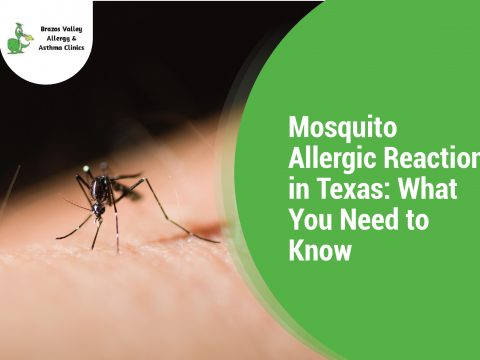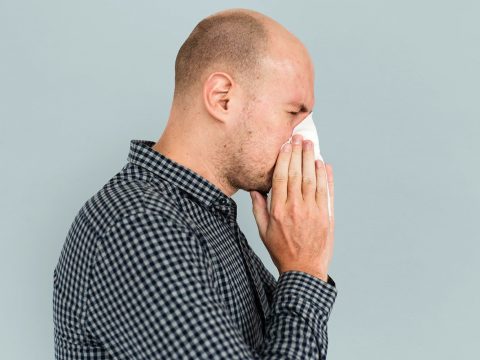- 979-485-9287
- office@bvallergy.com
-
 979-251-7804
979-251-7804
Do I Need Antibiotics for My Allergies?

Sinus Infection: Causes, Symptoms, and Treatments
February 17, 2023
What to Expect During Venom Desensitization
April 11, 2023Understanding Antibiotics for Allergies
Allergies affect millions of individuals worldwide regardless of social status, race, age, and gender. It is estimated that over 50 million live with allergies in the United States alone. Moreover, statistics say that allergies are the 6th leading cause of chronic illness in the Americas.
But how do you treat allergies? Does the treatment begin and ends with anti-allergy medications? Or do antibiotics help with allergies? The answer lies in our discussion. We will explore the role of antibiotics in treating allergies in this article. Moreover, we will also define what allergy is for a better understanding.
If you’re one of the thousands of individuals asking: do I need antibiotics for my allergies? Continue reading to find out.
What is Allergy?
An allergy occurs when harmless substances or compounds enter your body, and your immune system attacks them like intruders. When your body’s natural defenses go haywire, you will experience allergy symptoms like sneezing, skin rash, itchy eyes, and many other similar symptoms.
What Causes Allergies?
Allergies come from a multitude of sources, whether you’re indoors or outdoors. The most common cause of an allergy is allergens. Allergens come from pollen, animal dander, molds, and dust. Moreover, foods, drugs, and insect stings can cause allergies too.
Do Antibiotics Help Allergies Get Better?
Can allergies be treated with antibiotics? The answer depends on the cause of your allergic reaction. The primary role of antibiotics is to fight infections caused by bacteria. Moreover, these medications inhibit their growth and proliferation. Typically, anti-allergy meds are sufficient in treating allergy symptoms. That is because antibiotics do not target the causes of allergies, such as allergens. Treat allergy antibiotics and allergies with care. Do not resort to self-medication if you are unsure of your condition.
However, some situations or medical conditions related to allergies require antibiotics for treatment. One of the best examples of such conditions is a sinus infection or sinusitis.
What is a Sinus Infection (Sinusitis)?
Sinus infection or sinusitis is a medical condition that causes swelling or inflammation of your sinuses. When sinusitis occurs, your body excessively produces mucus that blocks your sinuses. Therefore, putting you at risk of bacteria build-up and causing infections.
What is the Common Cause of Sinusitis?
There are many factors to consider about the causes of sinusitis, such as the common cold, nasal polyps, and deviated septum. However, one condition links sinusitis to allergies. That is allergic rhinitis.
Understanding Allergic Rhinitis
Allergic rhinitis causes the inside lining of your nose to swell. The typical culprit is allergens. Allergists typically run a few tests to determine if your sinus infection is due to bacteria. Only then will they recommend antibiotics for treatment. Otherwise, anti-allergy meds are enough to do the job.
Note: Antibiotics are only beneficial when the cause of nasal blockage is due to bacterial infection. Your allergy doctor will tell you when or not antibiotics are necessary for the treatment.
Risks of Unnecessary Antibiotic Intake for Allergies
We have established that antibiotics are only necessary to treat allergies when the cause is due to bacterial infections. This section will explore the risks of taking antibiotics when they are not required.
Increased risk of developing an antibiotic-resistant infection
Bacteria tend to become more resilient and resistant to medications with misused antibiotic consumption. Incorrect usage often results to the following:
- Prolonged treatment duration
- Severe illness
- Stronger and more expensive medication requirements
Elimination of healthy gut bacteria
Incorrect usage of antibiotics could kill healthy bacteria in your gut, allowing the growth of harmful bacteria. Moreover, you are at risk of developing chronic diseases due to a weakened immune system.
Adverse side-effects
When not needed, some common side effects of antibiotics include dizziness, skin rash, upset stomach, nausea, vomiting, lightheadedness, anaphylaxis, and many more. What to do for allergic reactions to antibiotics? Contact your allergist for proper treatment.
A Note on Anaphylaxis
Anaphylaxis could put you in an emergency situation. This severe allergic reaction requires immediate medical intervention. Otherwise, it could lead to life-threatening conditions.
Symptoms
Below are the common symptoms of anaphylaxis.
- Dizziness or fainting
- Airways constriction
- Swollen tongue or throat
- Wheezing
- Trouble breathing
- Skin reactions, such as hives and itching
- Nausea, vomiting, or diarrhea
- A sudden decrease in blood pressure (hypotension)
- A weak and rapid pulse
Anaphylaxis can occur within minutes after consuming an allergy drug or antibiotic like penicillin. Be sure to go to the emergency room in such cases.
Common Antibiotics Allergy Antibiotics Reactions
- Tightness of the throat, which can cause breathing difficulties.
- Coughing.
- A raised, itchy skin rash (urticaria or hives)
- Wheezing.
Treatment for Allergies
Now that you know that antibiotics are not always the best for treating allergies, it’s time to discuss the typical allergy treatment. We’ve compiled the common allergy treatment methods for you below.
Antihistamines
Blocking your body’s production of histamines is the primary role of these medications. They are one of the most common drugs allergists or pharmacists recommend to treat allergic reactions.
Decongestants
One of the most efficient ways to relieve nasal blockage discomfort is to take decongestants. These meds reduce the swelling of blood vessels and tissues in your nose. It allows you to breathe easier.
Corticosteroids
Allergies often trigger inflammation of some sort. Corticosteroids reduce inflammation caused by allergies. These drugs are also efficient in treating allergy-induced asthma.
Allergen Immunotherapies
There are many types of allergen immunotherapy, but the two most common are allergy shots and sublingual immunotherapy (SLIT). These methods differ in administration. However, their targeted benefits are similar. Allergen immunotherapy naturally boosts your immune system by gradually introducing allergic substances to your body. This approach typically results in long-term protection against seasonal or perennial allergies.
When to Take Antibiotics for Allergies?
Antibiotics are drugs that target bacteria. You will only need them when the cause of your allergies is due to bacterial infection. Otherwise, regular anti-allergy drugs will work just fine. Moreover, never take antibiotics without a prescription, or you may experience their adverse effects. Treat allergies with antibiotics as instructed by your allergy doctor.
Experience Safe and Efficient Allergy Treatment the Right Way
You’re at the right place if you want safe and efficient allergy treatment in College Station, Brazos Valley. Our allergy doctors begin with accurate testing to provide the right treatment plan for you.
Our board-certified Dr. Paul Jantzi provides safe and effective allergy treatments based on proven techniques with years of experience. You can reach him at any of the Brazos Valley Allergy & Asthma Clinics.
Book an appointment today to regain control of your life over allergies.




